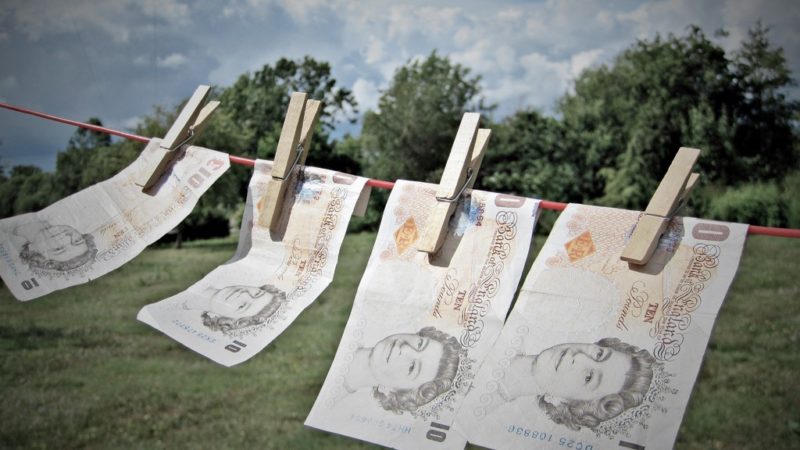'The UK economy is in dire straits. It has the highest level of reported government fraud, the highest level of taxation for 70 years, and the biggest decline in living standards since the Second World War'

Prem Sikka is an Emeritus Professor of Accounting at the University of Essex and the University of Sheffield, a Labour member of the House of Lords, and Contributing Editor at Left Foot Forward.
The UK economy is in dire straits. It has the highest level of reported government fraud, the highest level of taxation for 70 years, and the biggest decline in living standards since the Second World War. The government’s incompetence and obsession with deregulation is inflicting hardship on millions.
This week, in the House of Lords, I asked the government for an assessment of the possible losses arising from fraudulent use of (1) furlough support, (2) the Bounce Back Loan Scheme, and (3) other COVID-19-related financial support schemes. Needless, to say the Minister was economical with information even though frauds are likely to run into tens of billions of pounds.
The Government Counter Fraud Function has already classified £219bn of the £387bn Covid-related financial support as “high or very high fraud risk”. Basic fraud prevention checks were not carried out.
Applicants for the furlough staff support schemes were not asked to provide national insurance numbers of employees. This information would easily have been checked in seconds against a central database, as it is when someone opens an Individual Savings Accounts (ISA). The failure enabled fraudsters to make claims for non-existent staff and/or make duplicate claims.
Applicants for loans were not asked to provide their HMRC reference number which could have been checked against a centralised database. This enabled newly formed and dormant companies to secure loans. Indeed, there was a surge in formation of new companies. Some 770,000 new companies were registered in 2020, an increase of 30% over the previous year, but this did not ring any alarm bells. Many have since been dissolved.
The government has a huge problem in catching many fraudsters because anyone from anywhere in the world can register a company in the UK. They can use any imaginable name and address and no authentication checks are made. Fraud investigations are costly and there no guarantee that even the amounts lost to UK-based fraudsters would be recovered.
The government’s never-ending public sector wage freezes have led to failures in administration. Lord Agnew of Oulton, former Minister of State, HM Treasury and the Cabinet Office told the House of Commons Treasury Committee that “the average age of a Treasury official is 29 and the turnover of staff in there is somewhere between 20% and 25% a year. They are very bright in a standard way—they went to a good university and got a good degree—but they have no life experience”.
With low wages and job insecurity, making a long-term career in civil service isn’t an attractive option. High staff turnover and low morale are the outcomes. The incessant use of consultants means that government departments are unable to build an institutionalised stock of knowledge and capabilities. Ministers often lack sector specific know-how and their tenure in office is typically about 18 months, hardly long enough to appreciate the intricacies.
Early analysis suggests that some £37bn of the Covid-related financial support has already been lost to fraudsters. But that isn’t the full picture of fraud and waste at the heart of the government.
Fake firms secured personal protection equipment (PPE) contracts. Many supplied unsuitable PPE. Some £9bn of PPE expenditure has been written-off though the full extent is not known. Another £37bn has been squandered on a Covid Test and Trace programme which failed to meet its objectives.
Frauds and waste isn’t just due to the pandemic. During 2019-20, some £29.3bn-£52bn was lost to frauds. HMRC says that it fails to collect around £35bn of taxes each year due to fraud, evasion, avoidance and errors. Other models put the annual tax loss at between £58.6bn and £122bn. This means that since 2010, taxes of between £400bn and £1,500bn have not been collected. HMRC is handicapped by poor laws and lack of resources.
Due to government secrecy, a comprehensive estimate of frauds and wastes is not possible, but the above provides a glimpse. The government response has been to squeeze public services, welfare budget and the state pension. It handed £895bn of quantitative easing to speculators, but won’t do the same to rebuild the economy. Instead, it has hiked taxes to the highest level since the 1940s. The tax take will increase from pre-Covid level of 33% of gross domestic product (GDP) to 36% and the money isn’t building social infrastructure or investing in new industries. 27 million workers will pay more in income tax and national insurance by 2024-25, severely depleting their purchasing power.
With the doubling of energy prices, hikes in food, transport, housing and other costs, millions are consigned to poverty and reliance on foodbanks. Before Covid, some 14.5 million people, including 8.1 million working-age adults and 4.3 million children, were living in poverty. Those number are expected to swell by another 1.3 million people into poverty, including 500,000 children
The propaganda machine of the Conservative party portrays the government as economically competent. But scratch the surface and you find a government facilitating frauds and tax dodges running into tens of billions of pounds through incompetence and its obsession with deregulation, wage freezes and public sector cuts.
Left Foot Forward doesn't have the backing of big business or billionaires. We rely on the kind and generous support of ordinary people like you.
You can support hard-hitting journalism that holds the right to account, provides a forum for debate among progressives, and covers the stories the rest of the media ignore. Donate today.



